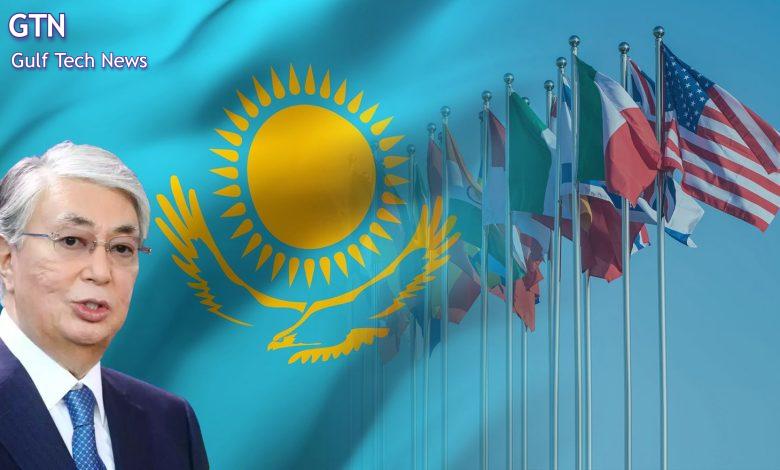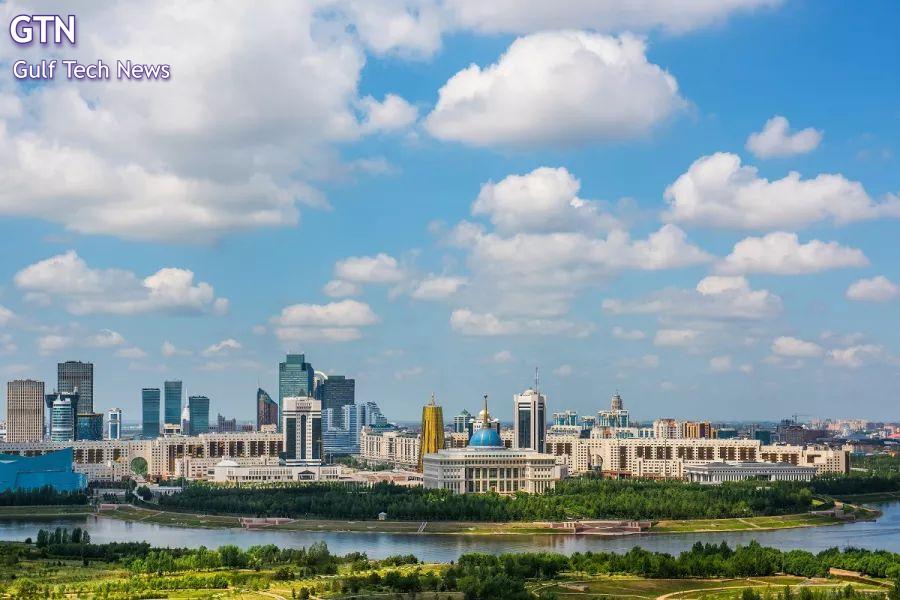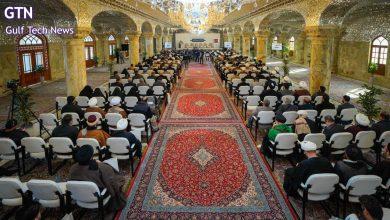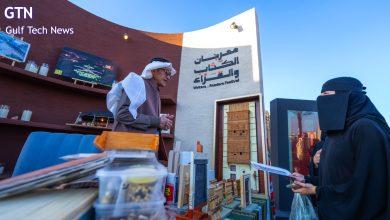Kazakhstan’s Peaceful Foreign Policy… A Model of Dialogue, Stability, and Global Cooperation

By: Dr. Abdul Rahim Abdul Wahid
Astana – Dubai:
In a world often marred by turmoil and geopolitical shifts, the Republic of Kazakhstan stands as a beacon of diplomacy and enduring peace, strategically positioned between Asia and Europe. This Central Asian country has shaped a unique identity not only through its breathtaking landscapes and rich cultural heritage but also through its unwavering commitment to promoting global harmony.
Kazakhstan’s foreign policy is intricately woven with the threads of peace, cooperation, and diplomacy, underpinned by a deep dedication to maintaining peaceful relations with its neighbors and beyond. From the heart of Eurasia, Kazakhstan’s journey on the international stage is a testament to the transformative power of proactive diplomacy and strategic engagement. A closer look reveals how Kazakhstan’s peaceful foreign policy initiatives have contributed to regional stability, sustainable development, and a precedent for constructive dialogue in an interconnected world.
Nuclear Disarmament
Among its most significant initiatives is Kazakhstan’s leadership in nuclear disarmament and non-proliferation. The country made a historic decision to relinquish the world’s fourth-largest nuclear arsenal inherited from the Soviet Union. In 1991, Kazakhstan closed the Semipalatinsk nuclear test site and voluntarily gave up its nuclear weapons, setting a global precedent.
It also established the International Day Against Nuclear Tests (adopted by the UN in 2009), hosted the IAEA’s Low Enriched Uranium Bank in Oskemen, and advocated for the Treaty on the Prohibition of Nuclear Weapons.

Peaceful Support for Sustainable Development
Since gaining independence in 1991, Kazakhstan has adopted a peaceful foreign policy rooted in diplomacy, multilateralism, and international cooperation. As a landlocked nation in Eurasia, Kazakhstan understands that its security and prosperity depend on stable relations with its neighbors and constructive engagement with the broader international community. Over the past three decades, Kazakhstan has emerged as a global advocate for peace, disarmament, sustainable development, and intercultural dialogue.
This article highlights Kazakhstan’s comprehensive peaceful foreign policy and its contribution to regional stability and global harmony.
Balanced Relations
Kazakhstan’s “multi-vector” foreign policy ensures balanced relations with major global powers including Russia, China, the United States, the European Union, and Islamic countries. This balanced approach has enabled Kazakhstan to act as a neutral mediator in international and regional conflicts.
During the Russia-Ukraine war, Kazakhstan maintained neutrality, supported Ukraine’s territorial integrity, and called for peaceful negotiations—while refraining from recognizing separatist regions and continuing dialogue with both Moscow and Kyiv.
Globally, Kazakhstan was elected a non-permanent member of the UN Security Council in 2017—the first Central Asian country to hold this role—due to its effective and peaceful diplomacy. In response to the COVID-19 pandemic, Kazakhstan donated PPE, medical supplies, and financial aid to Kyrgyzstan, Tajikistan, Afghanistan, and several African and Asian nations, advocating for fair vaccine distribution at the UN.
Middle East and the Islamic World
On Middle East peace issues, Kazakhstan hosted multiple rounds of the Astana peace talks on Syria, facilitating dialogue among Iran, Russia, Turkey, and Syrian opposition groups. The Astana process became a complement to UN-led Geneva talks. Kazakhstan also promoted peace in Palestine and supported the two-state solution within the framework of international law and UN resolutions.
Kazakhstan’s peaceful policies extend to the Islamic world through the establishment of the Congress of Leaders of World and Traditional Religions—held every three years in Astana since 2003. Kazakhstan actively cooperates with the Organization of Islamic Cooperation (OIC) and Western bodies like the OSCE, promoting understanding between the Islamic world and the West and positioning itself as a neutral voice fostering East-West harmony.
International Mediation Efforts
Kazakhstan’s foreign policy has consistently supported mediation in regional conflicts. Since 2017, it has hosted negotiations between the Syrian government, opposition forces, and international stakeholders like Russia. In 2014, Kazakhstan provided a neutral platform for peace talks between Armenia and Azerbaijan.
Kazakhstan has chaired leading international organizations including the Shanghai Cooperation Organization (SCO), the Organization of Turkic States (OTS), and the Conference on Interaction and Confidence Building Measures in Asia (CICA), enhancing regional cooperation and security.
Advancing Central Asian Interests
Committed to stability in Central Asia, Kazakhstan leads initiatives such as water diplomacy, shared resource management with Kyrgyzstan, Uzbekistan, and China, and hosts UN regional preventive diplomacy efforts. It also advocates for cross-border infrastructure and energy projects.
Kazakhstan’s foreign policy is built on mutual benefit and strategic partnerships with neighbors, abiding by modern international law and the UN Charter.
International Humanitarian Assistance
Kazakhstan has deployed over 700 personnel to UN peacekeeping missions, including the Golan Heights, Western Sahara, and the Central African Republic. It has also provided humanitarian aid to countries like Afghanistan, including food, scholarships, and infrastructure development.
Kazakhstan is a strong supporter of the United Nations, hosting numerous UN events and agencies. The UN Regional Centre for Preventive Diplomacy for Central Asia in Ashgabat works closely with Kazakhstan on water security and cross-border cooperation. Kazakhstan also hosted the 2023 UN Special Program for the Economies of Central Asia (SPECA) summit.
Multi-Vector Diplomacy
President Kassym-Jomart Tokayev consistently emphasizes Kazakhstan’s commitment to a constructive, balanced foreign policy based on national interests. The multi-vector approach allows Kazakhstan to engage with a diverse range of countries without aligning with any single bloc or alliance.
Kazakhstan prioritizes adherence to international law and the UN Charter, calling for peaceful and diplomatic conflict resolution in a world of rising tensions.
President Tokayev also underscores the role of religious leaders in building a new global security system. He takes pride in Kazakhstan hosting the Congress of Leaders of World and Traditional Religions, a national initiative since 2003. This aligns with Kazakhstan’s efforts to balance the benefits of technological progress with the preservation of moral and humanitarian values.





